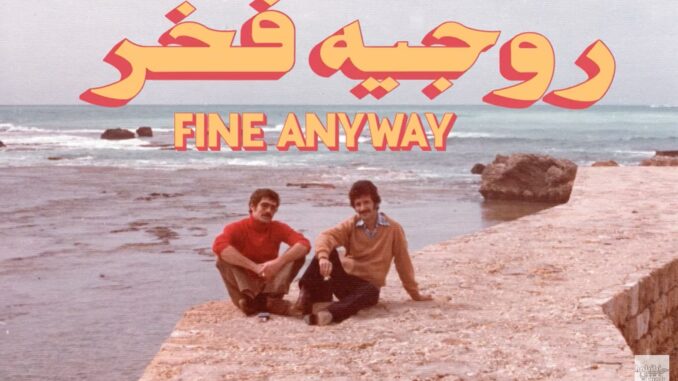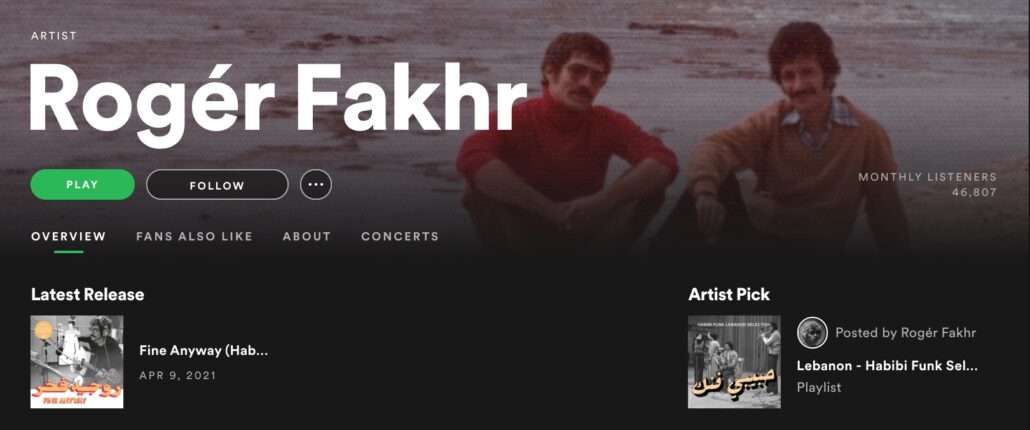
By AVA LIVERSIDGE
Rogér Fakhr was escaping the Lebanese Civil War when he should have been entering the ’70s singer-songwriter canon with his record Fine Anyway. Maybe today, we can afford the artist his rightful place in the indelible folk tradition.
Fakhr’s first and final full-length album was recorded in Beirut, Lebanon, but his slow-driving folk lull lends itself to the singer-songwriter tradition that reigned over the West Coast scene during its conception. The soulful tinges over a guitar-driven narrative is purely reminiscent of a Neil Young solo record with tracks like “Lady Rain” exemplifying the quintessential gothic folktale.
At the time of Fine Anyway’s initial completion, Fakhr’s collection was distributed as cassettes by-hand and its limited success was contingent on word-of-mouth publicity. Today, the record is being released for the first time ever on digital streaming platforms with Habibi Funk records. Rogér Fakhr may finally get his due.
There’s nothing overtly sprawling or exuberant about Fine Anyway. Some tracks may adopt a more upbeat tempo (“Insomnia Blue”) or even a Western gallop (“Express Line”), but the artistry ultimately relies on authenticity and fine points throughout the collection. Fakhr leans on a centralized vocal performance and minimal guitar picking as a base to which he enhances with airy backing vocals, violin interludes, or dynamic percussion breaks. That is to say, he makes his songs swing.
Occasionally, the stricture will relax: “(Such A) Trip Thru Time” offers a piano-driven arrangement, but the narrative focus remains. “My Baby, She Is As Down As I Am” boasts this darkened, mystic storytelling that guides Fakhr’s focal voice so entrancingly, as well as particular Lebanese influence on the guitar and keys arrangement. The majority of these derivations exemplify explicit jazz insights, an addition that keeps his storytelling intriguing. There’s intention, a tact dealing with each track’s arrangement, all singularly composed by Fakhr.
Beirut’s lost legend has synthesized an essential song collection of simple lament, boredom, and twilight, and, for us, it’s better late than never to uncover the narrative of another great 70’s songwriter.




